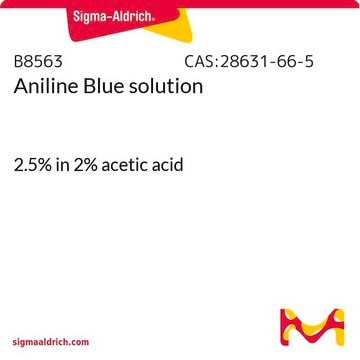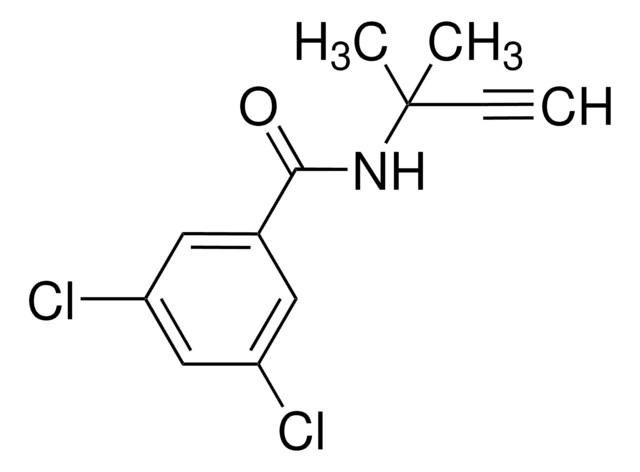51362
Auramine
analytical standard
Synonym(s):
4,4′-Dimethylaminobenzophenone imine, Solvent Yellow 34
About This Item
Recommended Products
grade
analytical standard
Quality Level
Assay
≥97.0% (HPLC)
technique(s)
HPLC: suitable
gas chromatography (GC): suitable
application(s)
cleaning products
cosmetics
food and beverages
personal care
format
neat
SMILES string
CN(C)c1ccc(cc1)C(=N)c2ccc(cc2)N(C)C
InChI
1S/C17H21N3/c1-19(2)15-9-5-13(6-10-15)17(18)14-7-11-16(12-8-14)20(3)4/h5-12,18H,1-4H3
InChI key
JPIYZTWMUGTEHX-UHFFFAOYSA-N
General description
Application
Packaging
Recommended products
Signal Word
Warning
Hazard Statements
Precautionary Statements
Hazard Classifications
Acute Tox. 4 Oral - Aquatic Chronic 2 - Carc. 2 - Eye Irrit. 2
Storage Class Code
11 - Combustible Solids
WGK
WGK 3
Flash Point(F)
Not applicable
Flash Point(C)
Not applicable
Personal Protective Equipment
Choose from one of the most recent versions:
Already Own This Product?
Find documentation for the products that you have recently purchased in the Document Library.
Our team of scientists has experience in all areas of research including Life Science, Material Science, Chemical Synthesis, Chromatography, Analytical and many others.
Contact Technical Service









